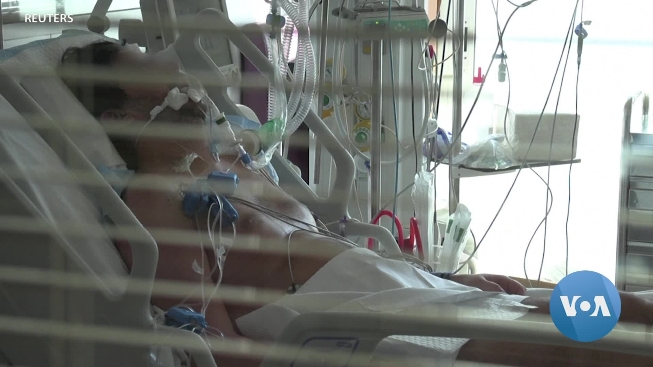
US Braces for Worst COVID-19 Weeks
VOA News By Fern Robinson
VOA NEWS – “It’s only been 30 days since our first case,” battle-fatigued New York Gov. Andrew Cuomo said Saturday about the COVID-19 outbreak that has invaded his state. “It feels like an entire lifetime.”
New York is the U.S. state hardest hit by the coronavirus, where it has claimed more than 3,500 lives. Public health experts say the situation is about to get worse, not only for New York, but for the rest of the United States as well.
While Cuomo said the state is about seven days away from its apex of the health crisis, U.S. President Donald Trump warned Saturday that the U.S. would soon face its hardest two weeks with the virus.
“There’s going to be a lot of death,” Trump said.
U.S. hospitals have been fighting the coronavirus battle with a woefully inadequate arsenal. Hospitals have been pleading for ventilators for their patients and the protective gear that doctors and other medical workers wear to prevent passing the disease back and forth between themselves and their patients.
New York received a shipment of 1,000 ventilators Saturday from China. “This is a big deal and it’s going to make a significant difference for us,” Cuomo said.
Cuomo also said 85,000 volunteers are helping New York combat the virus and that he will sign an executive order allowing medical students slated to graduate this spring to graduate early and start practicing.

Some states have been at odds with the White House because the Trump administration has not mounted a unified approach to combatting the virus, leaving each state to craft its own strategy to find medical equipment and drugs to fight the deadly virus.
The Washington Post reported the White House got its first official notification of the outbreak in China on January 3, but it took the administration 70 days to treat the outbreak as the deadly pandemic it has become.
The global tally of confirmed cases has climbed to more than 1.2 million and almost 65,000 deaths.
Seventeen medical workers at Egypt’s main cancer hospital have tested positive for the coronavirus and are now in quarantine, according to an Associated Press report. Dr. Hatem Abu el-Kassem, the director of Cairo’s National Cancer Institute, told AP all the health workers at the facility will be tested for the virus. There are 1,070 confirmed cases of the virus in Egypt.
Spain, with more than 126,000 cases and almost 12,000 deaths, plans to extend its nationwide lockdown by 15 more days, until April 26. Spanish Prime Minister Pedro Sanchez said Saturday he would ask parliament to extend lockdown measures for the second time after first extending them to April 11.
Italy, the second-hardest-hit European country after Spain, has had more than 11,000 of its medical workers infected by COVID-19, according to its National Institutes of Health and an association of physicians. The groups said about 73 physicians have died from the virus. Infections among medical personnel amount to nearly 10 percent of all infections in Italy.

Britain’s Ministry of Justice said Saturday that thousands of prisoners would be released within weeks as part of its broader campaign to contain the spread of the virus. Britain reported 708 deaths overnight, boosting the country’s death toll to more than 4,300. The ministry said the inmates would be electronically monitored to ensure they remain at home and could be returned to prison “at the first sign of concern.”
France’s military has begun moving patients to hospitals across the country in an effort to contain the coronavirus’s spread in the hard-hit area in and around Paris. Military planes, helicopters and trains are transporting patients to less-affected areas in western France. More than 7,500 deaths and 90,000 infections have been reported in France.
China observed a national moment of mourning for three minutes Saturday morning, as flags flew at half-staff and air sirens sounded to remember COVID-19 victims and the “martyrs” or front-line medical workers who died in the Asian nation’s fight to save the sick.
The coronavirus first emerged late last year in China’s Hubei province, killing more than 3,300 people.

